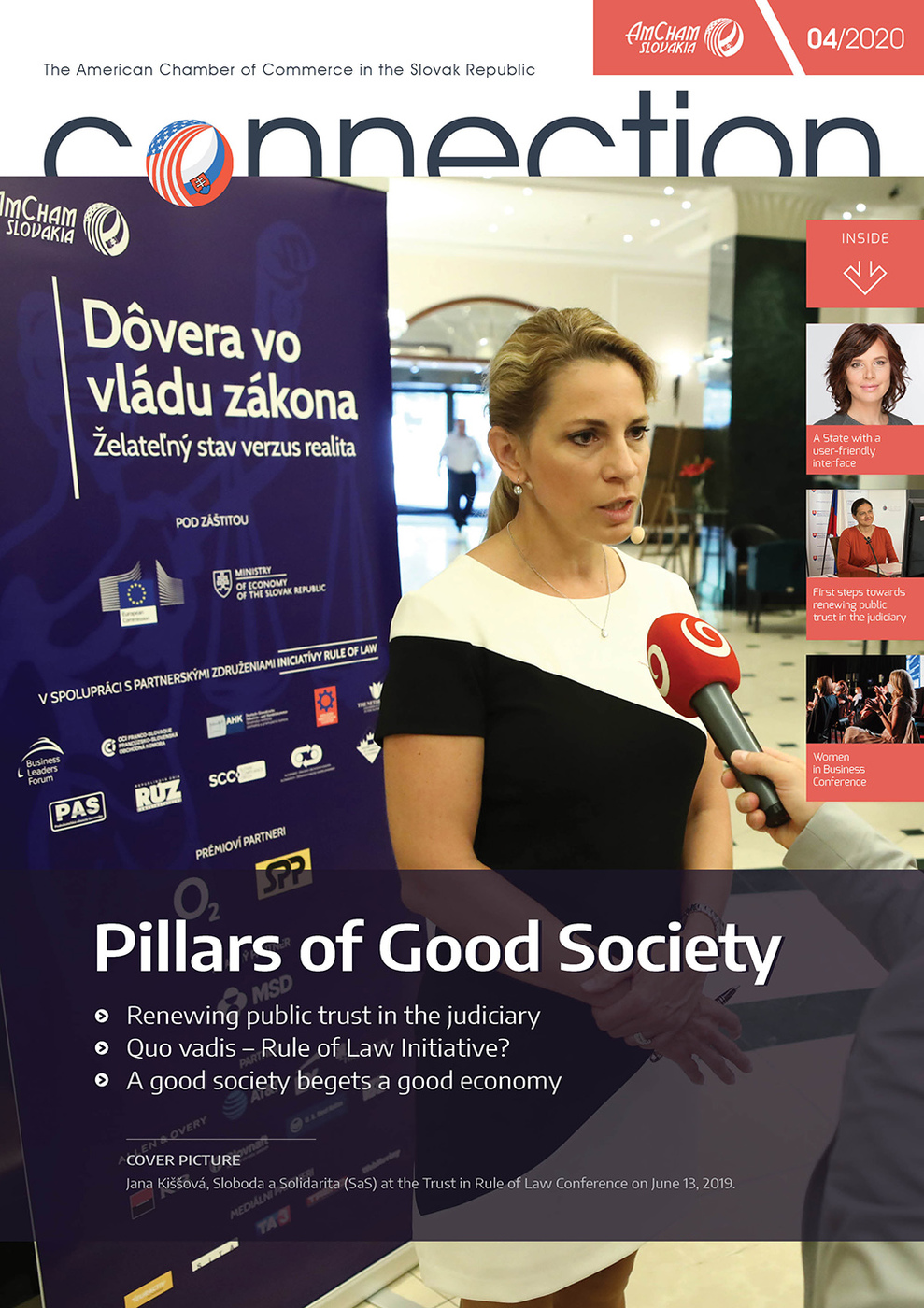The essence of Baťa’s words – to do business with regard to the needs of society and thus create shared value – has not lost any of its relevance even after almost a hundred years. Still, for many years, it was forgotten. CSR has been perceived as an activity on top of the ordinary business, the icing on the cake, which was the first to get cut when cost-cutting was necessary. A CSR strategy has been equivalent to a philanthropic strategy.
Currently, companies are returning to “Baťa’s” philosophy of CSR, which means broad-based responsible entrepreneurship that benefits the company’s partners, as well as the company itself. This shift results from the growing expectations of the public, especially the young generation, for entrepreneurship based on values. Further, this is due to the climate crisis, which, after years of ignorance, has become broadly recognized. And last but not least, the shift is also a consequence of the current COVID-19 pandemic which has definitely introduced the term ‘sustainability’ into companies’ business dictionaries.
So what should be the strategy of a company which cares about the expectations of its key partners (stakeholders)? And what makes a company’s CSR strategy meaningful?
With the management on board
Business and CSR strategies should not exist in two separate worlds. Companies which are serious about sustainability know that it is not sufficient for the CSR aspect to ‘only’ be present in everyday business decisions. On the contrary, the responsibility should drive the business itself, determining its priorities and further direction.
It is difficult to link a CSR strategy to a business strategy if CSR in the organizational structure is separate from the rest of the company. In Slovakia, we often encounter that CSR is covered by a person in the position of a communication or HR manager. This agenda is something like an addition on top of regular duties. In this setting, the CSR manager can influence who will receive philanthropic support, but it is difficult for him/her to influence whether the company builds a green roof or starts buying energy from renewable sources. The CSR agenda is cross-cutting and affects all areas and departments of a company – and the position and powers of the person who covers it should correspond to this reality. Therefore, in some companies, their CEO is also the Chief Sustainability Manager and his/her KPIs include meeting CSR goals.
It only works with stakeholders involved
The right CSR strategy should include the activities and goals on which the company wants to focus in relation to its key partners. For this reason, it is important to determine who your key stakeholders are right at the outset. Every company has employees, customers, and a certain impact on the environment and the local community. However, not all the companies include suppliers, the media and public administration among their most important stakeholders.
An internal agreement on the list of top stakeholders should be followed by a dialogue. What are their expectations of your company? What works well in your relationship, and what should improve?
Unfortunately, a dialogue with stakeholders is a step which companies very often skip. It is a time-consuming and capacity-intensive activity – even choosing the form of the dialogue (online questionnaire, personal meeting, focus group) is not simple. Still, in my experience, no company that embarked on this journey has ever regretted the decision. Instead, it has gained a valuable source of information and inspiration, a solid argument for leadership, as well as extra points for its reputation.
Relevance, authenticity and impact
The creation of a CSR strategy must result from the essential values and mission of the company. Why does your company exist, and what is its brand purpose? What is its vision, and how can you fulfill it?
Unless you skip the stakeholder dialogue phase, you should not worry that your strategy will be detached from what your business really is and where it wants to go. Stakeholders are the best mirror and at the same time litmus paper of the authenticity of your efforts.
What can we understand by ‘relevance’? It is where your business has the biggest impact. Establishing a beehive on the roof of a building is commendable, but from an environmental point of view, investing in energy-efficient production technologies or building insulation is undoubtedly more relevant. The strategic goals are not about ‘quick wins’, but about a long run.
Facts instead of emotions
Of course, every company should respond to the needs and expectations of the community. Often, however, “jumping on the popular wave” goes against sustainability. A good example here is plastics, which have become a scarecrow in the public debate in recent years. Of course, it is appropriate to look for ways to prevent the creation of unnecessary plastic waste, such as not offering water in plastic bottles in the workplace or minimizing packaging materials. Still, the complete removal of plastics would, for example, also mean more food waste in stores or high energy intensity (which is reflected in CO2 emissions) in the production of other types of packaging. The justification for increasing the proportion of recycled plastic packaging is certainly more difficult to explain to the general public, but difficult does not mean impossible. A company’s CSR strategy must be understandable, but at the same time also based on facts, expert calculations and analyses.
And consistency above all
At the beginning of this year, no one expected how much the COVID-19 pandemic would affect our lives. However, in the field of CSR, apart from its “humanitarian” phase, it has not brought any new topics to the table. In relation to employees, the companies which had long focused strategically on digitalization and the related work flexibility were not taken aback. Nor were those companies which had previously paid attention to the issues exacerbated by the pandemic, such as gender-based violence, mental health problems or social inequalities, which make it impossible for children to access education and opportunities.
Good CSR strategies are those that withstand uncertain times. Then it is clear that you have chosen the topics, goals and activities correctly.
Ivana Vagaská, Executive Director, Business Leaders Forum



Follow us